Роберт Бюттнер - Orphan's Destiny
Здесь есть возможность читать онлайн «Роберт Бюттнер - Orphan's Destiny» весь текст электронной книги совершенно бесплатно (целиком полную версию без сокращений). В некоторых случаях можно слушать аудио, скачать через торрент в формате fb2 и присутствует краткое содержание. Жанр: Боевая фантастика, на английском языке. Описание произведения, (предисловие) а так же отзывы посетителей доступны на портале библиотеки ЛибКат.
- Название:Orphan's Destiny
- Автор:
- Жанр:
- Год:неизвестен
- ISBN:нет данных
- Рейтинг книги:3 / 5. Голосов: 1
-
Избранное:Добавить в избранное
- Отзывы:
-
Ваша оценка:
- 60
- 1
- 2
- 3
- 4
- 5
Orphan's Destiny: краткое содержание, описание и аннотация
Предлагаем к чтению аннотацию, описание, краткое содержание или предисловие (зависит от того, что написал сам автор книги «Orphan's Destiny»). Если вы не нашли необходимую информацию о книге — напишите в комментариях, мы постараемся отыскать её.
Orphan's Destiny — читать онлайн бесплатно полную книгу (весь текст) целиком
Ниже представлен текст книги, разбитый по страницам. Система сохранения места последней прочитанной страницы, позволяет с удобством читать онлайн бесплатно книгу «Orphan's Destiny», без необходимости каждый раз заново искать на чём Вы остановились. Поставьте закладку, и сможете в любой момент перейти на страницу, на которой закончили чтение.
Интервал:
Закладка:
Ord snaps off the board. “That’s all the business for now, sir.”
I smile. The real business that this ship — this fleet — will do remains months and light-years away.
I pause at the bridge hatch. The swabbie rating with his little manual whistle spots me.
He snaps to, skirls out a call, and misses a note.
I squint at his chest. His ribbon row is as short as his skin is baby-pale. But he wears the blue-and-gold Rodger Young ribbon.
First of the gravity-shielded Corvette-transport fast-movers, crewed with bright kids, the Young exploded on her maiden voyage before she ever got out of Earth orbit.
In the best military tradition, those kids who never saw it coming got posthumous medals because somebody made a mistake.
The Young’s orphaned survivors had been distributed among other ships. He’s probably never played a manual bosun’s whistle before.
He calls, “Attention on deck! The embarked-division commander is on the bridge!”
I step around the master holo and salute the captain. Admiral, actually. “How we doing?”
The admiral points at the frontscreen. “Nothing unusual. The fast-movers made insertion two days ago. Those new ones fly.”
In the frontscreen’s green glow, I see wistfulness in her eyes. “You miss flying fast-movers, don’t you, Mimi?”
She smiles. It would be unprofessional to mention it on the bridge, but as lovely as the day we met. She says, “I’d trade the Metz for a Brumby-class command in a heartbeat.”
“And miss the fun of keeping peace between your squids and ten thousand mudfeet?” The Metzger class may be slower than the Corvette transports, but each ship can haul a full division.
The three “P”s that dog theater-grade commanders are paperwork, personnel, and politics. That was the best part of Insertion. Once you popped out in new space, you were light-years away from the politicians. No armchair quarterbacking until you came home.
If you came home. Not that politics offers safe harbor in the Slug War. Jeeb and I visit Ruth’s grave when we’re dirtside. We both cry.
I bitch a lot — only to myself and my Significant Other — about the three “P”s, but the fact remains that ten thousand kids bet their lives on my ability to juggle all those things and still be a better soldier than any of them.
In the viewscreens, the space ahead of us darkens first, as all light gets sucked into the ultradwarf core of the Insertion Point.
The kid with the whistle stares, bug-eyed.
I lean toward him, hands clasped behind my back. “First Insert?”
He nods. “Yes, sir.”
“And you worry why you get to see it while your buddies on the Young never will?”
His jaw drops. “Uh, yes, sir.”
I shake my head. “Don’t worry. Live the best life you know how. The rest is destiny.”
I point at the sidescreens. “Watch. First the stars stretch out like taffy, when their light gets bent. Then their light turns parallel to us and they go out altogether. It’s really wick!”
He looks at me oddly. They tell me nobody has said “wick” since before the war, but the only way I throw my rank around is to choose my own slang.
A ’puter voice, throaty and feminine, chimes. “Insertion in five.”
There was a time when I giggled every time I heard that.
The stars go out.
Acknowledgments
Authors like reissues because others do the heavy lifting. Rarely, those others lift extraordinarily well, and Orbit’s reissue of Orphan’s Destiny, like its predecessor, Orphanage, is such a rarity. Therefore, my special thanks to Orbit publishing director Tim Holman and editor Devi Pillai for vision and drive; to Calvin Chu for a sparkling new cover design; to Alex Lencicki for imagination; and, to Jennifer Flax for keeping them all on track.
Thanks, too, to my agent, Winifred Golden for unflagging enthusiasm and savvy, and to Mary Beth, for everything.
ROBERT BUETTNER is a former Military Intelligence Officer, National Science Foundation Fellow in Paleontology, and has published in the field of Natural Resources Law. He lives in Georgia. His Web site is: www.robertbuettner.com.
AUTHOR’S NOTE
Orphanage: A 2004 take on an evergreen story by ROBERT BUETTNER
On January 29, 1898, the Saturday Review gasped at a new “romance” that had “hit upon a subject so far from experience and completely outside common expectation” that “our readers must buy it and alarm themselves with it at their leisure.” Readers did.
A century after H. G. Wells’ The War of the Worlds, we still snap up Alien-war tales. Those tales have evolved to match the zeitgeist of the world in which each was written.
Wells’ story reflected Victorian fears of massive, mechanized war that would torture all of Europe.
Wells was right, but he won no sympathy for Aliens. In 1993, Sir Arthur C. Clarke stopped short of “blam[ing] Wells for all the later excesses of interplanetary warfare,” but Sir Arthur complained that Wells laid it down that “anything Alien was likely to be horrible.” Nowadays, we prefer our Aliens warm, fuzzy and politically correct.
Fortunately for those who like good yarns, writers didn’t write all Mork-from-Ork since 1898, probably because the world they wrote in was no sitcom.
In Cold War 1959, Robert Heinlein won a Hugo with Starship Troopers. As Uncle Sam drafted even Elvis Presley to repel the Commies, Heinlein penned a tale of noble battle against city-nuking spiders commanded by fat, Nikita Khrushchev brain bugs.
Post-Vietnam, Joe Haldeman exposed a never-ending war, started by our side for no good reason, waged by cynical conscripts, in his own 1974 Hugo-winner, The Forever War.
So, why the Orphanage books, a fast, darkly funny, retold tales of a young man-become-soldier amid interplanetary war? Because Starship Troopers and The Forever War marvelously embraced the zeitgeist in which each was written, but each suffers for it in a post-9/11 world.
Starship Troopers glorified a neo-facist future where only soldiers earn voting rights and we flog criminals publicly. Dialogue often echoes ’50s TV. Women pilot Heinlein’s starships, but they are perfumed and mystical, like aproned ’50s moms flying Frigidaires.
Vietnam-vet Haldeman expressly rewrote Heinlein and scorned Starship’s Cold War jingoism. Haldeman embraced the ’60s’ “emerging truths.” The war is our fault. All officers and politicians are sadistic fools. Soldiers get pot rations and bunk co-ed, rotating sex partners nightly.
Orphanage and Orphan’s Destiny avoid politics. It was written to say one true thing to a population that has been blessed by scant military experience but that, post-9/11, finds soldiers again relevant. That thing is: soldiers fight not for flags or against tyrants but for each other. Combat soldiers become one another’s only family. Strip away politics and, wherever or whenever, war is an orphanage.
Orphan’s Destiny was written to explore the challenges soldiers face when they survive.
Orphanage and Orphan’s Destiny engage readers in a future just forty years distant, where space shuttles and television are antiques, not ancient artifacts. Any passion and humor they muster, compared to Heinlein’s and Haldeman’s classics, grows from affection for foot soldiers, an affection those books share.
Readers familiar with Heinlein will detect a few covert tributes, as will Haldeman fans.
Orphanage and Orphan’s Destiny aren’t anti-communist or anti-war like their predecessors. They are just pro-foot soldier.
Интервал:
Закладка:
Похожие книги на «Orphan's Destiny»
Представляем Вашему вниманию похожие книги на «Orphan's Destiny» списком для выбора. Мы отобрали схожую по названию и смыслу литературу в надежде предоставить читателям больше вариантов отыскать новые, интересные, ещё непрочитанные произведения.
Обсуждение, отзывы о книге «Orphan's Destiny» и просто собственные мнения читателей. Оставьте ваши комментарии, напишите, что Вы думаете о произведении, его смысле или главных героях. Укажите что конкретно понравилось, а что нет, и почему Вы так считаете.

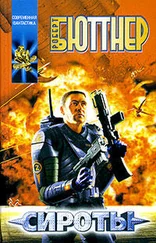

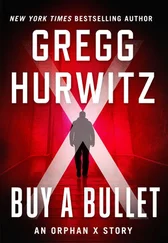
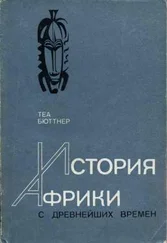
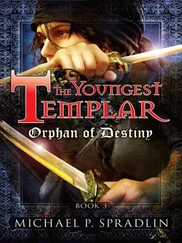
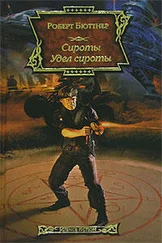
![Дэн Бюттнер - Где живет счастье [Правила жизни самых счастливых людей планеты] [litres]](/books/395574/den-byuttner-gde-zhivet-schaste-pravila-zhizni-samyh-thumb.webp)



